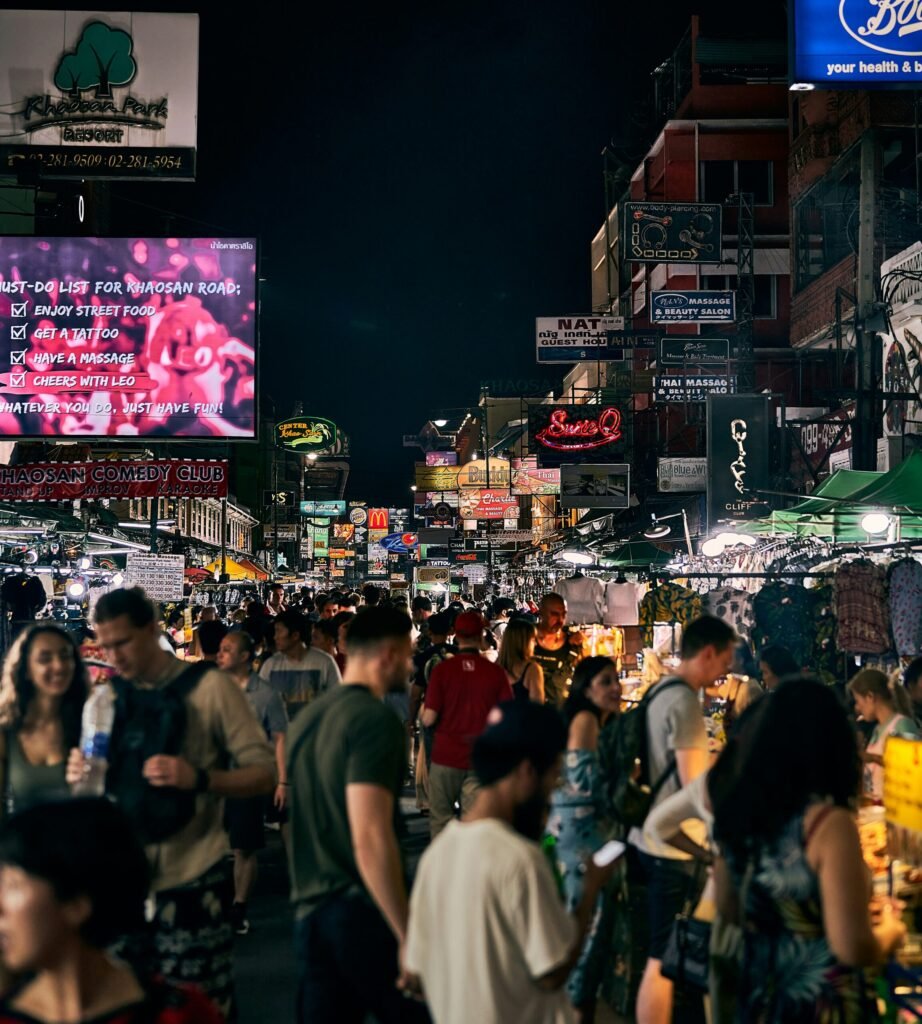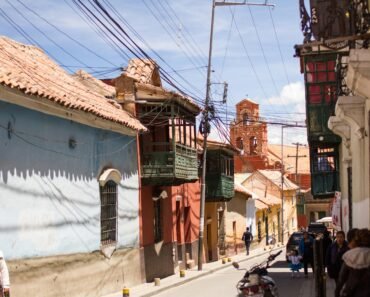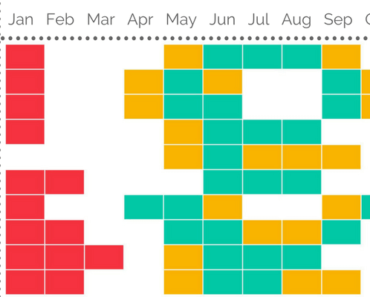Do you ever find yourself daydreaming about exotic destinations but feel hindered by the costs of peak season travel? This is a common predicament for many. Travel expenses can quickly escalate during peak times, making your dream vacation seem more like a distant fantasy. However, there is a lesser-known, cost-effective alternative that savvy travelers swear by: off-peak travel.
Why Off-Peak Travel?
The Cost Factor
Traveling during off-peak times can save you a substantial amount of money. Airlines, hotels, and even local attractions often slash their prices to attract visitors during slower periods. For budget-conscious travelers or those looking to stretch their vacation funds, this can be a game-changer. Lower costs on essentials mean more money to spend on experiences and activities, making for a richer travel experience without breaking the bank.
Lesser Crowds
Another significant advantage is the reduced crowd sizes. Imagine exploring historic landmarks, tranquil beaches, or bustling markets without the overwhelming throngs of tourists. The quieter atmosphere allows for a more intimate and enjoyable experience. Whether you’re an introvert seeking solitude or simply someone who appreciates a bit of breathing room, off-peak travel offers a unique opportunity to enjoy the world’s wonders in peace.
Better Interactions with Locals
When the tourist rush is at its peak, locals are often stretched thin catering to them. Off-peak travel allows for more personal interactions. Locals have more time and are generally more willing to engage in conversation, share stories, and provide insights that you wouldn’t normally get. This can lead to a more genuine experience and a deeper understanding of the destination.
When is Off-Peak?
General Guidelines
The definition of “off-peak” can vary depending on your destination. Typically, it refers to times of the year when the weather isn’t at its absolute best, or when children are in school, making family vacations less likely. For example, Europe sees fewer visitors in the winter, while tropical destinations might be less crowded during the rainy season.
Seasonal Variations
| Destination | Peak Season | Off-Peak Season |
|---|---|---|
| Europe | Summer (June – August) | Winter (November – March) |
| Southeast Asia | Winter (December – February) | Monsoon (May – October) |
| Australia | Summer (December – February) | Winter (June – August) |
| USA (Florida) | Winter (December – April) | Summer (June – August) |
Knowing the general peak and off-peak times can help you plan accordingly. But remember, “off-peak” doesn’t always mean unpleasant weather. Many destinations offer mild, enjoyable climates even during their less popular seasons.
School Holidays
One major factor contributing to peak travel times is school holidays. Avoiding these periods can help you take advantage of off-peak prices. This is particularly relevant for family travelers or those working in education. Paying attention to local holiday schedules can make a significant difference in the cost and quality of your trip.

This image is property of images.unsplash.com.
Planning Your Off-Peak Trip
Research is Key
Start by researching your desired destinations. Look up their peak times, weather patterns, and cultural events. Online travel forums and websites are invaluable resources. Locals or frequent visitors often share tips that can give you a realistic picture of what to expect during off-peak periods.
Flexibility in Dates
One of the most significant advantages of off-peak travel is the flexibility it affords. Airlines and hotels often offer variable pricing, so being flexible with your travel dates can help you snag the best deals. Use fare comparison websites and set alerts to notify you when prices drop.
Booking in Advance
While spontaneous travel has its charms, booking in advance can often yield substantial savings. Early bookings offer the best availability, allowing you to pick from the best options at lower prices. This is especially important if you’re traveling to places that are still moderately busy during off-peak times.
Off-Peak Activities
Research specific off-peak activities available at your destination. Some attractions may offer discounts during less busy times, or you might find seasonal activities that are only available during off-peak periods. Understanding what to do during your travels can enhance your experience and keep you engaged without spending excessively.
Best Destinations for Off-Peak Travel
European Cities
European cities like Paris, Rome, and Barcelona are perfect for off-peak visits in the winter. Attractions like museums, cathedrals, and monuments are far less crowded, and you can often find deals on luxury accommodations. While the weather may be chilly, the charm of these cities persists year-round.
Southeast Asian Countries
Thailand, Vietnam, and Indonesia can be hot and crowded during the winter months but offer a serene experience during the rainy season. Although you might encounter showers, these are typically short-lived and often result in lush, vibrant landscapes.
American Road Trips
Road trips across the USA are less hectic outside the summer months. Destinations like the Grand Canyon, Yellowstone, and Route 66 are less crowded, allowing you to enjoy the natural beauty without the crowds. Autumn and spring offer mild weather and stunning scenery at a fraction of the usual cost.
Australian Adventure
Australia’s off-peak in the winter (which is summer in the Northern Hemisphere) offers a great opportunity to explore cities like Sydney, Melbourne, and Brisbane. The weather remains relatively mild, and you can enjoy iconic spots like the Great Barrier Reef without the peak season rush.

This image is property of images.unsplash.com.
Practical Tips for Off-Peak Travel
Packing Smart
Off-peak travel might mean packing for varying weather conditions. Layering is key. Bring clothing that can easily adapt to changing temperatures and unpredictable weather. Don’t forget essentials like an umbrella, sunscreen, and comfortable walking shoes.
Health Considerations
Some off-peak seasons coincide with seasons prone to certain illnesses or higher allergen levels. Be sure to check health advisories and get any necessary vaccinations or medications. It’s always better to be prepared to handle minor health issues so they don’t ruin your trip.
Transportation
During off-peak times, public transportation schedules might be different, and some services might be less frequent. Understanding the local transportation system, renting a car, or learning about local taxi services can save you from unexpected inconveniences.
Dining Out
Smaller crowds often mean better dining experiences. Restaurants and cafes aren’t as rushed, and you’re more likely to get a seat without waiting. Take advantage of this to explore local cuisine. Don’t shy away from asking for recommendations from locals or your hotel staff.
Local Events and Festivals
Off-peak seasons often feature local events and festivals that tourists frequently miss out on. These events can offer a richer, more authentic experience of the local culture. Look up event calendars and try to incorporate these into your travel plans.
Common Myths About Off-Peak Travel
It Means Bad Weather
Many people assume off-peak travel means braving terrible weather. While this can be true for some destinations, it’s not a universal rule. Many places have mild, manageable weather even during off-peak times, and the benefits of fewer crowds and lower costs often outweigh any minor weather inconveniences.
Fewer Services Available
Another misconception is that fewer services will be available during off-peak times. While some attractions or tours might reduce their operating hours, this is generally not the case for essential services like transportation, dining, and accommodations.
Limited Activities
People often worry there will be less to do during off-peak seasons. However, this period can be an opportunity to explore more unique and less tourist-centric activities. It’s a chance to see a destination from a local’s perspective, which can often be more fulfilling.

This image is property of images.unsplash.com.
Conclusion
Off-peak travel offers a blend of cost-efficiency, comfort, and unique experiences that can make your trips more enjoyable and memorable. Lower costs mean you can explore more destinations, stay longer, and immerse yourself in a place more deeply. The benefits extend beyond mere financial savings; it’s about experiencing a destination without the overwhelming presence of other tourists, often resulting in a more authentic and enriching travel experience.
Understanding and navigating the nuances of off-peak travel can seem daunting at first, but with a bit of planning and flexibility, it can turn into your preferred travel method. Not only will your wallet thank you, but you’ll likely find that you have richer and more meaningful travel experiences as well. So, the next time you’re planning a trip, consider going off the beaten path and traveling during off-peak times. It might just be the best decision you ever make.



